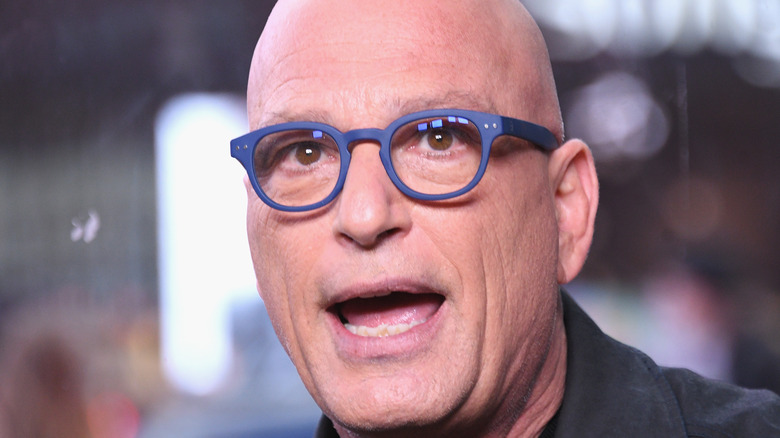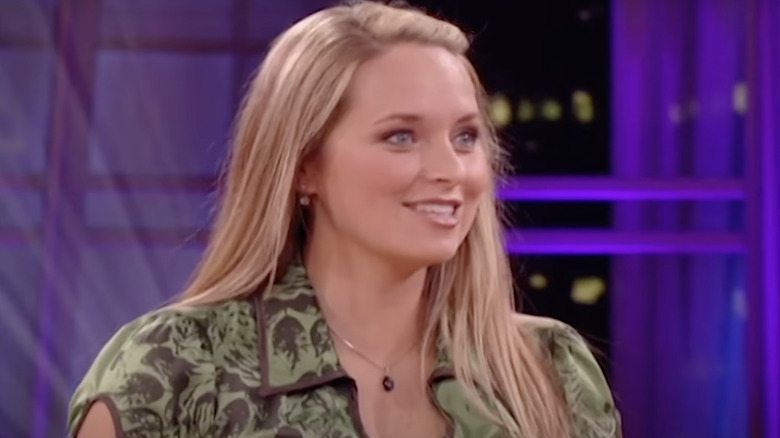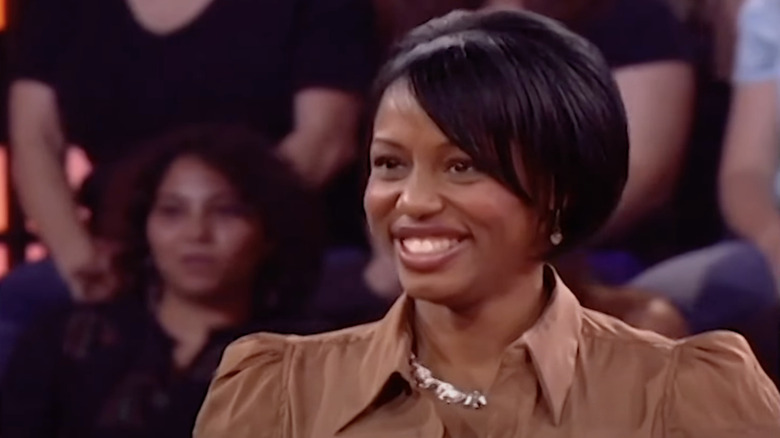The Most Money Ever Won On Deal Or No Deal
For years, on Friday nights in households across the country, Americans tuned in to see if contestants on NBC's game show, Deal or No Deal, could land the top prize of $1 million. The show, which premiered on December 19, 2005, was hosted by comedian Howie Mandel, who could offer up moments of comic relief during what was designed to be an anxiety-inducing hour of television. Over the hour, producers would ratchet up the suspense and the drama as contenders would agonize over every move they made trying to snag that $1 million.
For the unfamiliar, a single contestant selects one briefcase from 26 cases. Per IMDb, each briefcase has a monetary value from just a penny all the way up to $1 million. As the game continues, the contestant eliminates cases, while occasionally receiving a "deal" from "The Banker" in the sound booth, who offers cash in exchange for quitting the game. If the player refuses every deal, they are allowed to trade the original case for the last one in play. Then they take home the amount in the final case.
The show didn't test the players' skills as much as it pressed their luck and tested their strategy. "It is a place to escape and watch people's hopes and dreams come true and their lives change forever," Mandel told Channel Guide. "Not everybody can sing a song. Not everybody can dance. But everybody, whether you're 5 or 95, can make a decision that can change their lives."
The first million dollar Deal or No Deal winner
It wasn't until Season 4 that Deal or No Deal had its first big breakthrough winner. Jessica Robinson, a 27-year-old pregnant stay-at-home mom from Utah, pulled down the top prize in the first week of the new season in 2008. Robinson had what she knew in her heart to be a winning strategy. "All along I knew I wanted to pick briefcase number four because there's soon going to be four people in our family. It just made sense," she told People. Robinson said the last thing she wanted was to make the mistake of 15 previous contestants who chose the million-dollar briefcase, only to be talked out of it by The Banker. "Honestly, if my case had $200,000 in it I would have regretted it," Robinson said. "I talked to my supporters and surprisingly, as I think back, they were crazy for telling me to go forward!"
Robinson said she planned on using the money to support her family and to take pressure off her husband. "I'm a stay-at-home mom and I know I contribute to my family, but there are times I feel I don't contribute because I'm not getting a paycheck, and at the end of the day, I'm the spender," she says. "This will take the burden off [of my husband] being the breadwinner and taking care of us." According to The Cinemaholic, the family relocated to Austin, Texas, and has since become a family of six.
Some drawbacks
As much elation as Jessica Robinson expressed over her million dollar payday, not everyone feels that way. That same season, a second person won the same massive prize of $1 million. But Tomorrow Rodriguez, a mother of three and an Army wife who works with at-risk youth in Texas, said she was incredibly fortunate to have won the top prize, but the winnings came with a downside, and she prefers to avoid the topic altogether. "The worst part of winning a million dollars is sometimes you find out the people closest to you treat you a little different," she told CNBC. "They say you've changed," but "it's not that you've changed — they've changed when they can't get what they want."
Still, that $1 million dollar Deal or No Deal prize made a huge difference in Rodriguez's life. Per Oprah.com, she said she was living paycheck-to-paycheck and struggling to pay her $100,000 in student loans. Getting rich was the last thing on Rodriguez's mind — she just wanted relief. "I just thought, 'If I could go home with the amount I need to pay those bills off, and a little bit more, then I'm good,'" she told CNBC. Even though she went well beyond "a little extra," Rodriguez said she didn't go overboard. "I'm still conscious. I'm still safe. I have a Plan A, B, a back-up and an extra job," she said, adding, "If I want to buy it, I can buy it. But I won't. That's frivolous spending."


